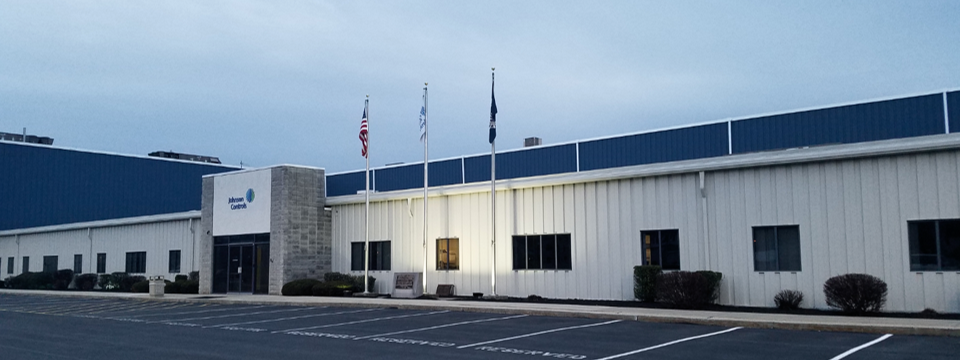Heat pumps up, gas and oil down: Waynesboro site gets millions from Department of Energy
One of Waynesboro’s oldest industries, today on the cutting edge of heating and cooling technology, will see millions of dollars in investment to ramp up electric heat pump production as the result of a grant announced just before Thanksgiving.
Johnson Controls, which still markets products made at 100 CV Ave., Waynesboro, under the Frick brand established in 1852, received $33,067,270 from the Department of Energy to be used at the local site well as facilities in San Antonio, Texas, and Wichita, Kan. The company will match the grant, putting the total at more than $66 million.
The allocation to Johnson Controls is part of $169 million under the Investing in America plan for nine projects to accelerate electric heat pump manufacturing at 15 sites across the country. A heat pump is an electric heating and cooling system powered by electricity rather than traditional gas or oil.
At Johnson Controls in 2017: New test lab opens in Waynesboro
The projects are meant to build a clean energy economy, create good-paying manufacturing jobs, improve air quality, help families and businesses save money on their energy bills and bolster national security by reducing reliance on foreign energy sources, according to a Department of Energy news release. The projects will collectively create over 1,700 jobs.

The growth will add 100 to 200 engineering, HVAC, digital applications, mechanical, plumbing and electrical jobs to the current Waynesboro roster of 370 in “what is hands down one of best work forces in world,” according to Katie McGinty, vice president and chief sustainability and external relations officer at Johnson Controls.
Combined, the updated Johnson Controls plants will produce an estimated 200,000 residential, commercial and industrial heat pumps a year, an increase of 200%, according to a company news release. The heat pumps will cut an estimated 25 million metric tons of carbon dioxide per year.
Investment in Waynesboro will be ‘double-digit millions’
In a letter of support for the grant, Waynesboro Mayor Richard Starliper wrote, the project “will provide a needed investment in domestic heat pump manufacturing, set the stage for critical energy efficiency and supply chain improvements in the future, and benefit the (borough) and residents of Waynesboro.”
Exactly how much will be invested in Waynesboro is not yet known, but it will be “double-digit millions,” McGinty said.
Johnson Controls will now enter detail discussions with the Department of Energy and hopes to be ready to launch the projects in three or four months, McGinty said.
What are the benefits of heat pumps?
Demand for residential heat pumps has taken off last couple of years, the next huge horizon is institutional/industrial use and Waynesboro is at heart of that emerging market, McGinty said. Johnson Controls was recently recognized on Fortune’s 2023 Change the World list for innovative and transformative heat pump technology.
“Heating and cooling buildings, homes, offices, schools, hospitals, military bases and other critical facilities drive more than 35% of all U.S. energy consumption,” the Department of Energy release said. “Heat pumps efficiently provide comfortable temperatures for heating and cooling homes and businesses in all climates, especially when homes are well insulated, and can also provide more efficient water heating. When compared to gas boilers, heat pumps reduce greenhouse gas emissions by up to 50%.”
“As we move toward achieving nation-wide reductions in greenhouse gas emissions, it is critical that our commercial, institutional and industrial sectors have the technologies necessary for effective decarbonization,” McGinty added. “Some of our heat pumps will help homeowners cut their energy bills, while others can play a major role in commercial industries. For example, we already are working with large scale institutions on heat pump deployments that will cut emissions by more than 70% and costs by more than 60%.”
Heat pumps are “defining the future of energy and they are homegrown right in Waynesboro,” McGinty said. She termed Waynesboro “literally the leading location in country, if not world, in building and testing large heat pump machines.”
In addition to production, McGinty expects Waynesboro to attract business leaders from around the country to see heat pumps in action as they look to install the money- and energy-saving technology.
“Heat pumps don’t get to pass go unless they pass qualification, certification and testing and Waynesboro is the center of all of that,” she added.
More about local economic development: Walmart fulfillment center, Chambersburg Mall redevelopment among big business news for 2024
This article originally appeared on Waynesboro Record Herald: Johnson Controls gets millions for heat pump production in Waynesboro

